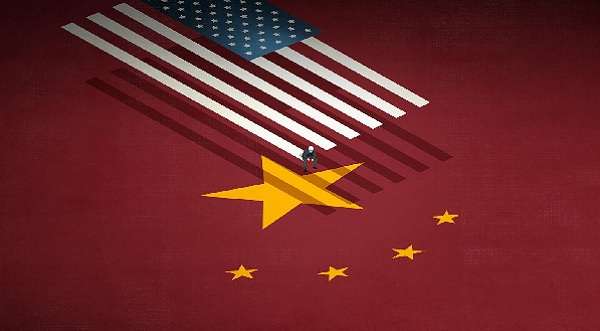
- What are the US foreign policy ideologies?
- What are the three main goals of American foreign policy?
- How did the Cold War impact American foreign policy?
- What was America's foreign policy between the two world wars?
In the United States, foreign policy has been a hotly debated topic for decades, with different ideologies and political factions clashing over the direction the country should take in its relations with other nations. These ideological battles have shaped American foreign policy in significant ways, influencing decisions on issues ranging from war and peace to trade and diplomacy.
United States had a responsibility to promote democracy
One of the earliest and most enduring ideological battles over American foreign policy was the struggle between isolationism and interventionism. Isolationists believed that the United States should avoid entangling alliances and conflicts abroad and focus on building its own economic and military power. Interventionists, on the other hand, argued that the United States had a responsibility to promote democracy and human rights around the world and to defend its interests and allies through military intervention if necessary.
This debate came to a head during World War II, when President Franklin D. Roosevelt led the country into the war against Nazi Germany and Japan, despite fierce opposition from isolationist groups like the America First Committee. After the war, the United States emerged as a superpower and a leader of the free world, and the interventionist camp gained more influence in shaping American foreign policy.
However, the Vietnam War in the 1960s and 70s sparked a new ideological battle, this time between hawks and doves. Hawks believed that the United States should pursue an aggressive military strategy to contain the spread of communism, while doves argued that the war was unjustified and immoral and that the United States should withdraw its troops and pursue diplomacy instead.
The Vietnam War deeply divided the country, with protests and civil unrest on a scale not seen since the Civil War. Eventually, public opinion turned against the war, and the United States withdrew its troops in 1973. The legacy of the war continues to shape American foreign policy debates, with some arguing that the United States should avoid military intervention unless it is absolutely necessary, while others believe that the country should be more assertive in promoting its interests and values abroad.
United States should use its military and economic power
Another major ideological battle in American foreign policy is between neoconservatives and realists. Neoconservatives believe that the United States should use its military and economic power to promote democracy and human rights around the world, even if it means preemptive military action against potential threats. Realists, on the other hand, argue that the United States should prioritize its national interests and focus on maintaining a balance of power in the world, rather than trying to impose its values and ideology on other countries.
This debate came to a head in the aftermath of the 9/11 attacks, when the neoconservative Bush administration launched a war on terror and invaded Iraq, based on the belief that Saddam Hussein’s regime posed a threat to American national security. Realists criticized the war as a misguided and costly adventure that undermined American credibility and strength.
Approach to international affairs foreign policy
In recent years, the ideological battles over American foreign policy have continued to shape the country’s approach to international affairs. The rise of populist and nationalist movements around the world has challenged the liberal internationalist consensus that has dominated American foreign policy since the end of World War II. President Trump’s “America First” foreign policy, which emphasized economic nationalism and skepticism of multilateral institutions, represented a sharp departure from the traditional bipartisan approach to foreign policy.
Conlcution
The Biden administration has signaled a return to a more traditional approach to American foreign policy, with a focus on rebuilding alliances and promoting democracy and human rights around the world. However, the ideological battles over American foreign policy are far from over, and the country will continue to grapple with fundamental questions about its role in the world and the best way to promote its interests and values while avoiding unnecessary conflicts and casualties.